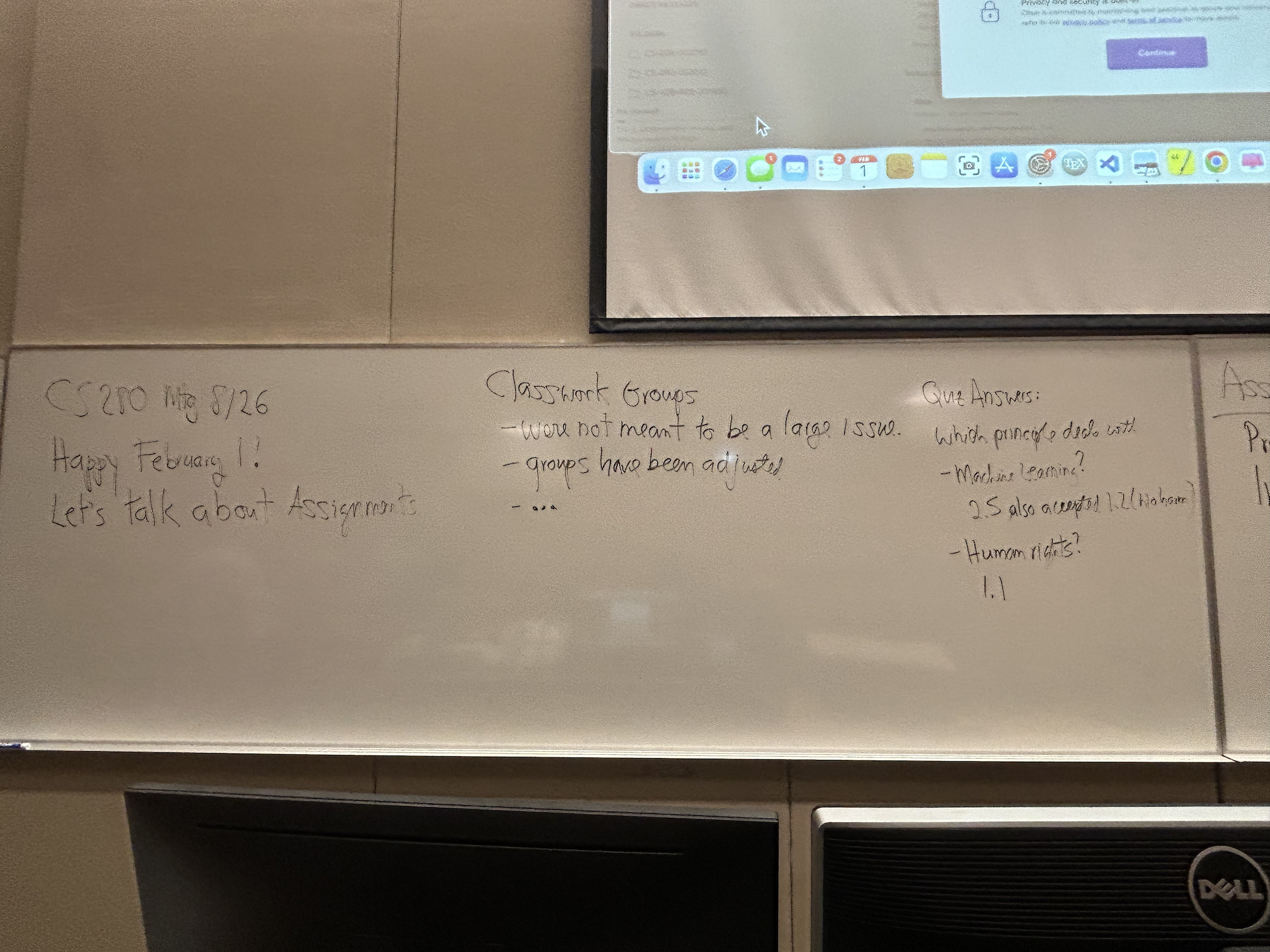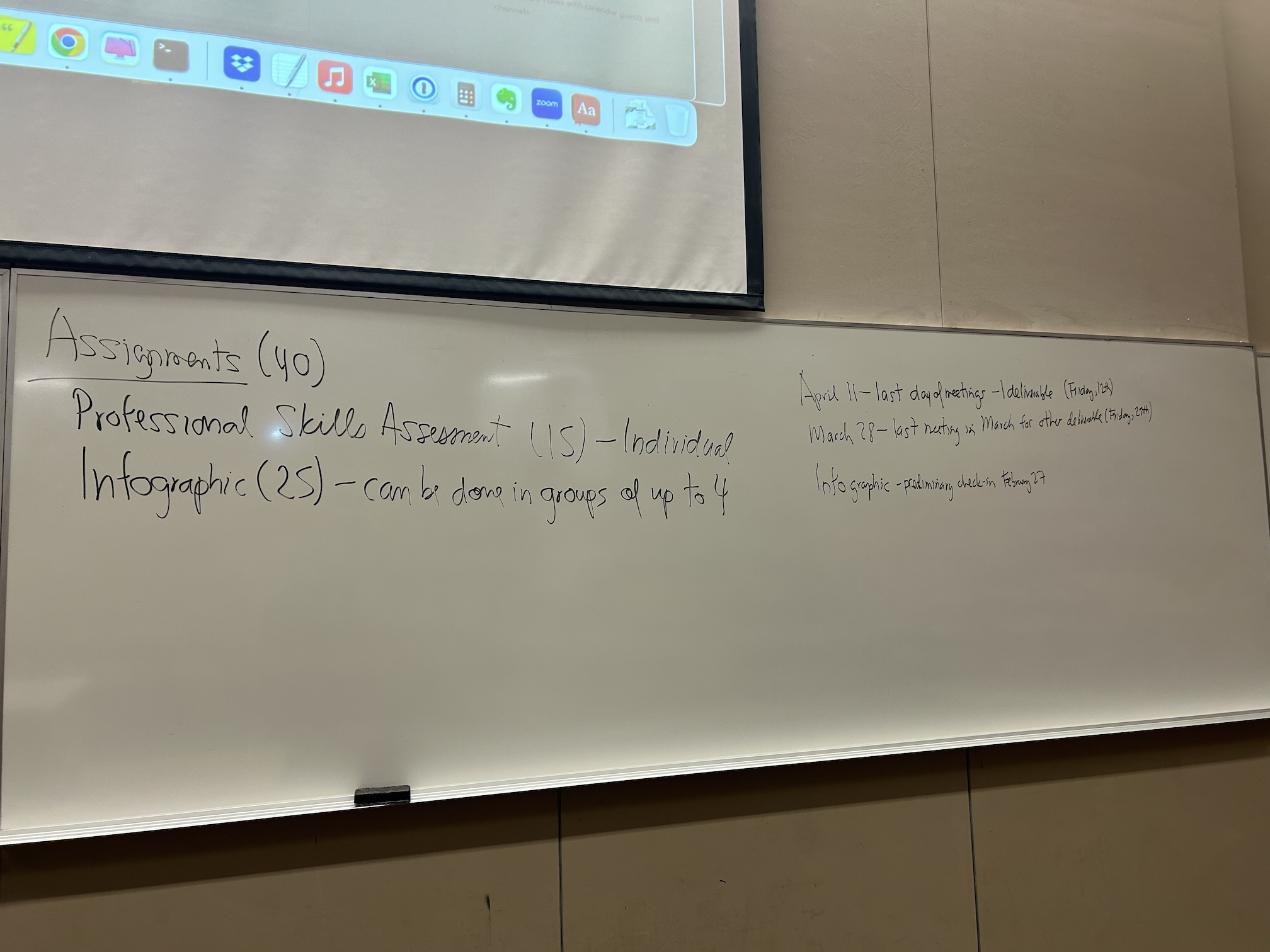Mtg 8/26: Thu-01-Feb-2024
Outline for Today
Assignments
Administration
- Happy Thursday
- Attendance
- Class calendar for today
- Upcoming events
Response to Responses
Response to responses
Today
- Classwork groups
- Assignments
Summary
Summary
For Next Meeting
- Submit your response to this meeting before noon tomorrow
- Read Blown to Bits Chapter 5
- Take quiz before the start of our next meeting
ACTION: Take quiz before next meeting
Wiki
Link to the UR Courses wiki page for this meeting

